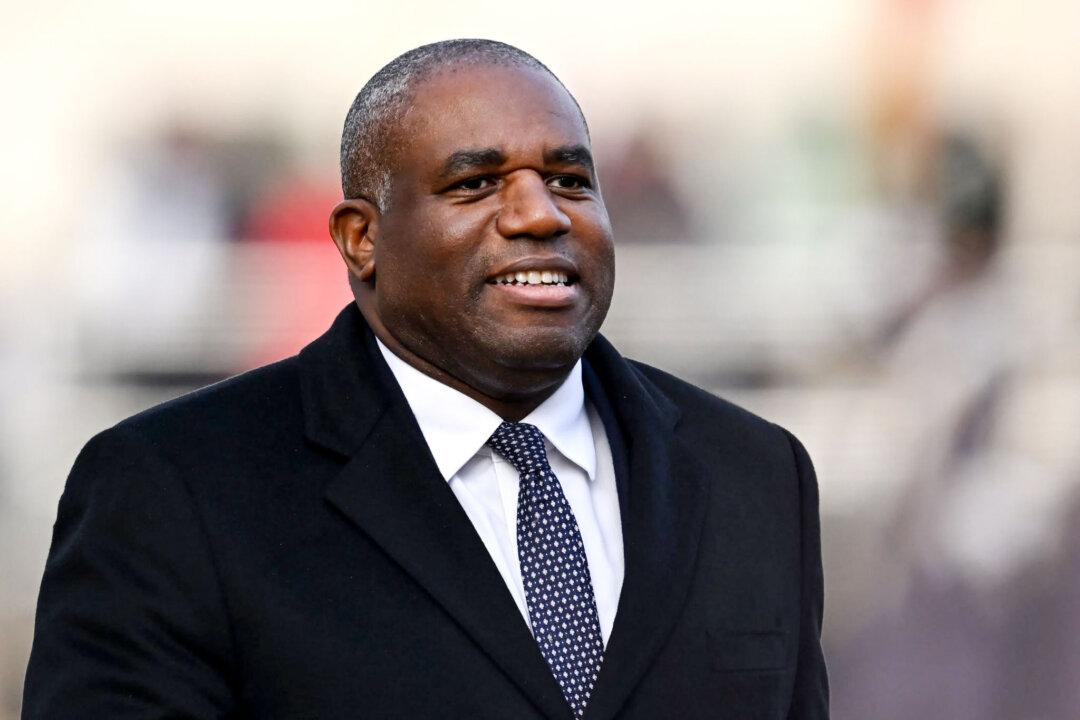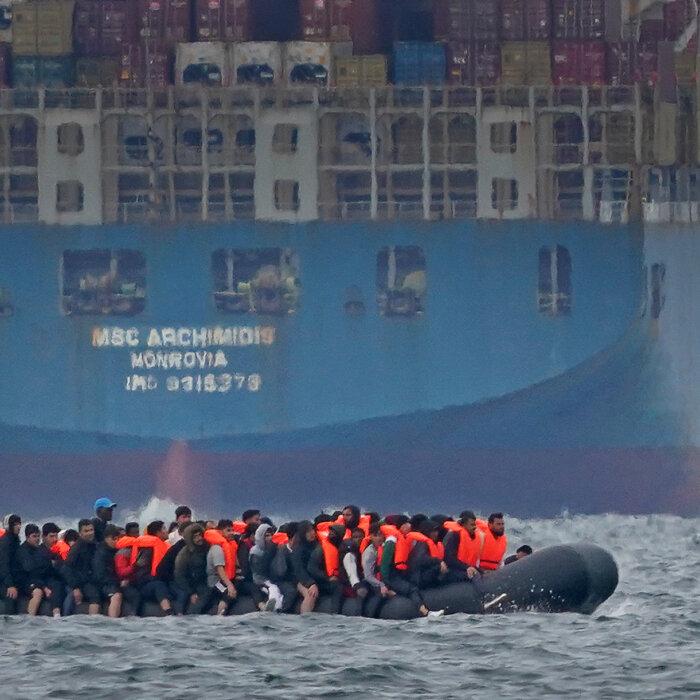A new sanctions regime aimed at disrupting people smuggling networks will cut off their profits and financial flows, the government has announced.
The initiative is part of government efforts to tackle illegal immigration and reduce small boat crossings in the English Channel. The end of last year marked the crossings of 150,000 immigrants since 2018, when records began.
Billed as the “world’s first standalone sanctions regime” targeting irregular migration and organised immigration crime, the new regime has been welcomed by Foreign Secretary David Lammy.
Speaking at the Foreign Office on Thursday, Lammy said: “The UK … is to be the first country in the world to develop legislation for a new sanctions regime specifically targeting irregular migration and organised immigration crime.
“This will help to prevent, combat, deter, and disrupt irregular migration and the smuggling of migrants into the UK.”
The new rules will come into effect within the year and will involve collaboration between the Home Office and law enforcement.
Speaking with law enforcement chiefs in central London, Prime Minister Sir Keir Starmer described the new sanctions regime as a “very powerful addition to the powers at your disposal.”
Starmer also reiterated the government’s commitment to “smashing the people smuggling gangs” and securing UK borders.
Interim Orders
The sanctions framework builds on last week’s announcement of new interim orders, enabling law enforcement to act quickly without needing a conviction.Under the new laws, suspected people smugglers could face travel bans, social media restrictions, and limits on mobile phone and laptop use. Violating an interim order could result in a prison sentence of up to five years.
The proposals will form part of the Border Security, Asylum and Immigration Bill, currently advancing through Parliament.
According to the Home Office, the immigration bill will bolster the UK’s new Border Security Command, which is tasked with combating people smuggling gangs often responsible for illegal Channel crossings.
International Pathway
The sanctions regime will be an autonomous scheme, but the Foreign Office said it will collaborate with international allies to combat people smugglers.In recent months, the UK has strengthened partnerships with countries such as Germany and Iraq to enhance intelligence sharing and law enforcement collaboration.
“A realistic strategy involves transactional, hard-headed diplomacy, and to agree with partners, smart interventions at every stage along the international people smuggling pathway. So together we can strengthen borders, smash the gangs, and get those with no right to be here returned to their countries,” Lammy said in his speech.
The initiative also builds on work with the Calais Group and G7 nations in the Anti-Smuggling Action Plan in October. The joint action aims to disrupt supply chains that facilitate people smuggling, such as small boat parts.
Immigration Policy
After coming into government, Labour scrapped the previous government’s immigration policy, under which immigrants who enter the UK illegally would be either returned to their home country or sent to Rwanda.First introduced in 2022, the Rwanda scheme was a key part of the Conservatives’ plan to “stop the boats” by deterring future crossings.
Shadow home secretary Chris Philp has previously said that Labour had failed to offer “any real or credible plan” to protect the UK’s borders.
Writing for The Telegraph last week, Philp said the Conservatives would “introduce a hard, legally binding cap on legal migrant numbers” and “have zero tolerance for foreign criminals by expelling them.”
“We would also introduce a Rwanda-style removals deterrent. If illegal immigrants knew they would be rapidly removed upon arrival then they wouldn’t bother crossing in the first place,” he added, urging Starmer to adopt these policies.
The Home Office has said it has increased enforcement and restored order to the “chaotic asylum system” in just under six months after coming to power.
“With these new sanctions, we will target those profiting off putting lives at risk and disrupt the gangs’ finances, making it harder for them to operate,” said Home Secretary Yvette Cooper.







